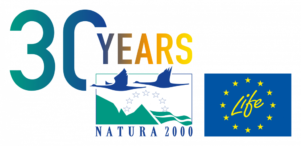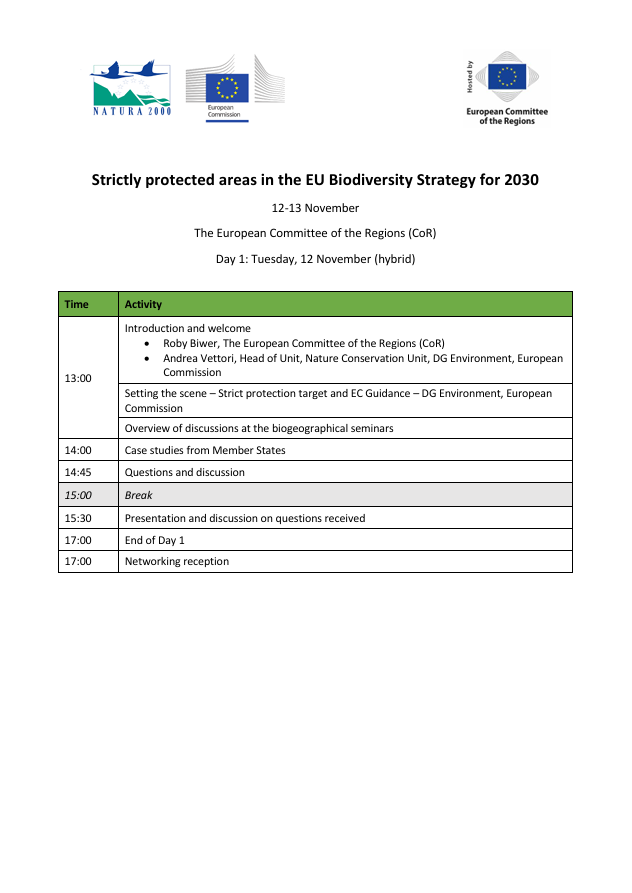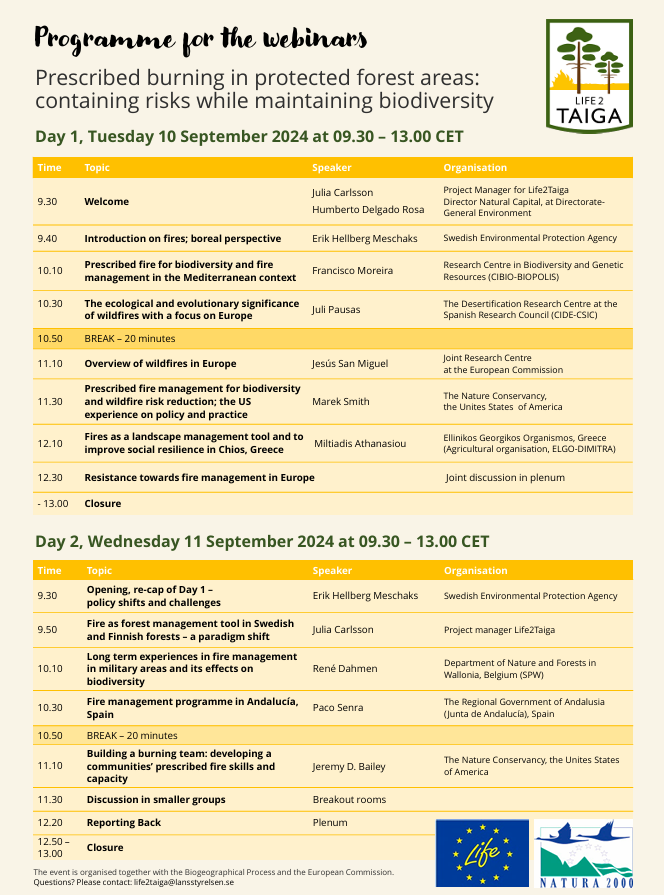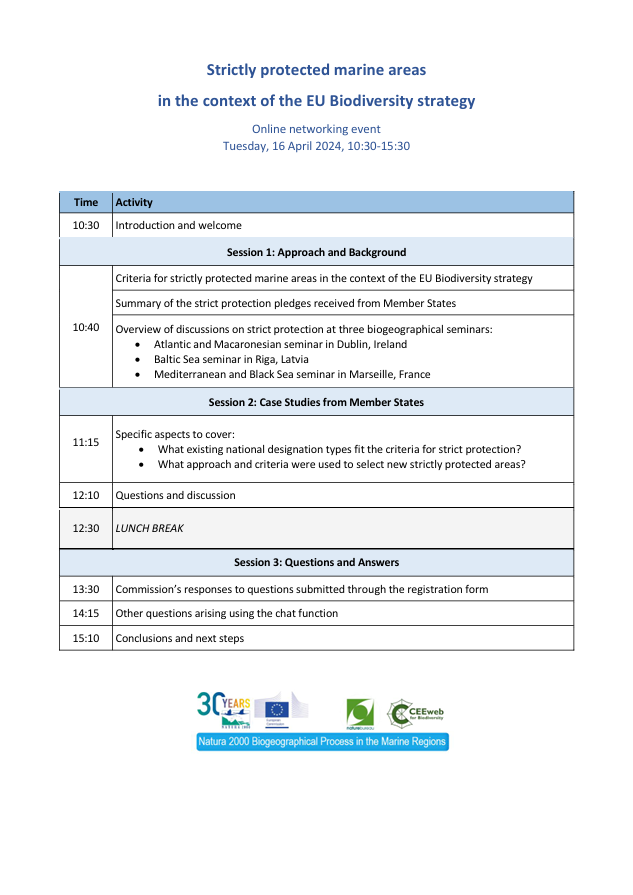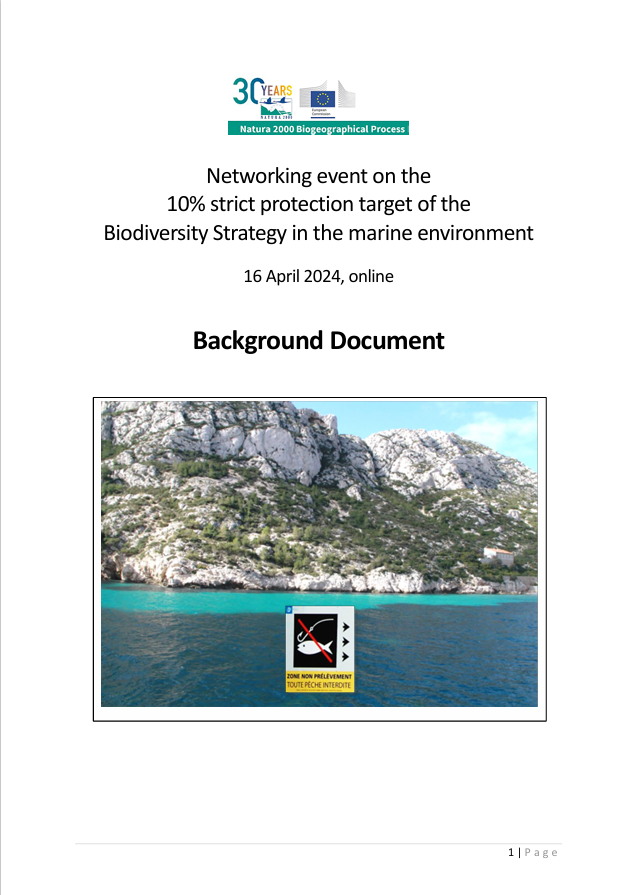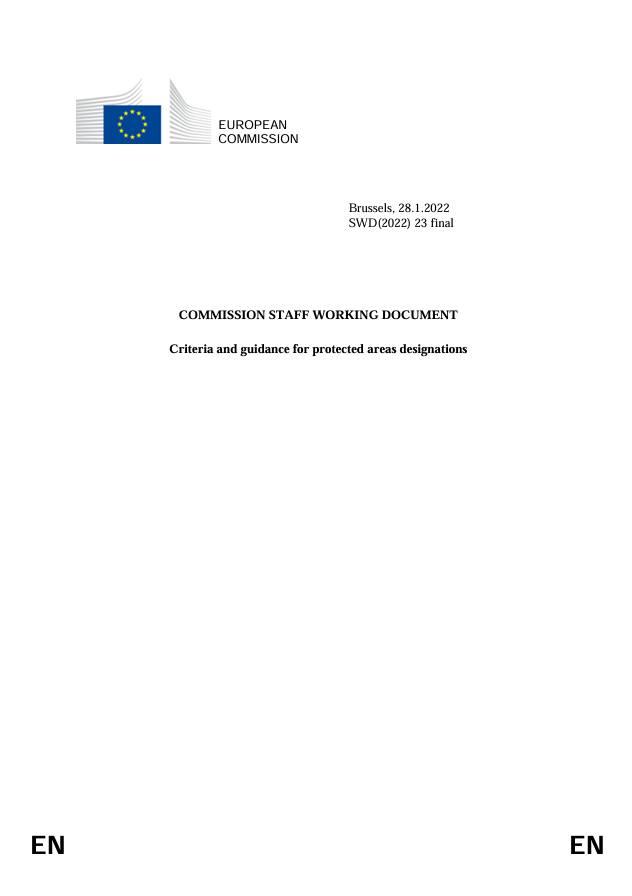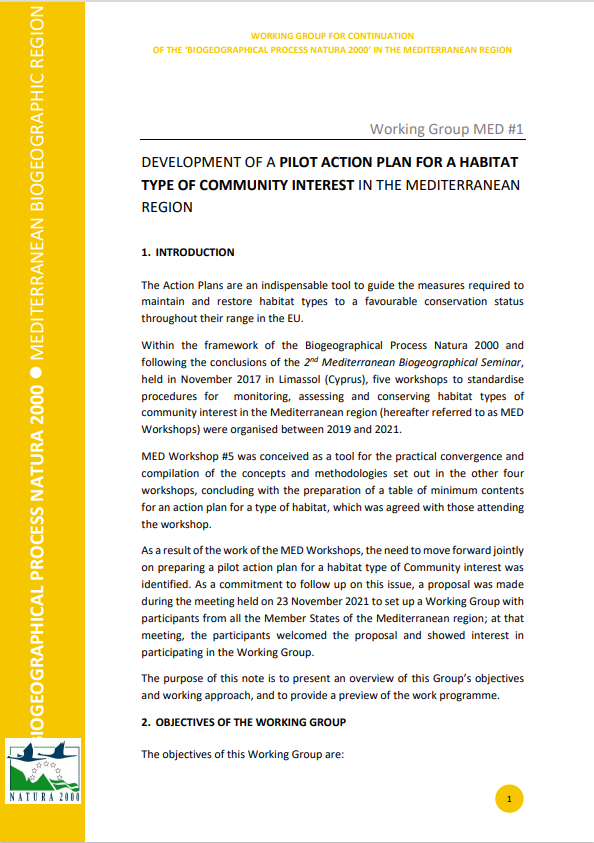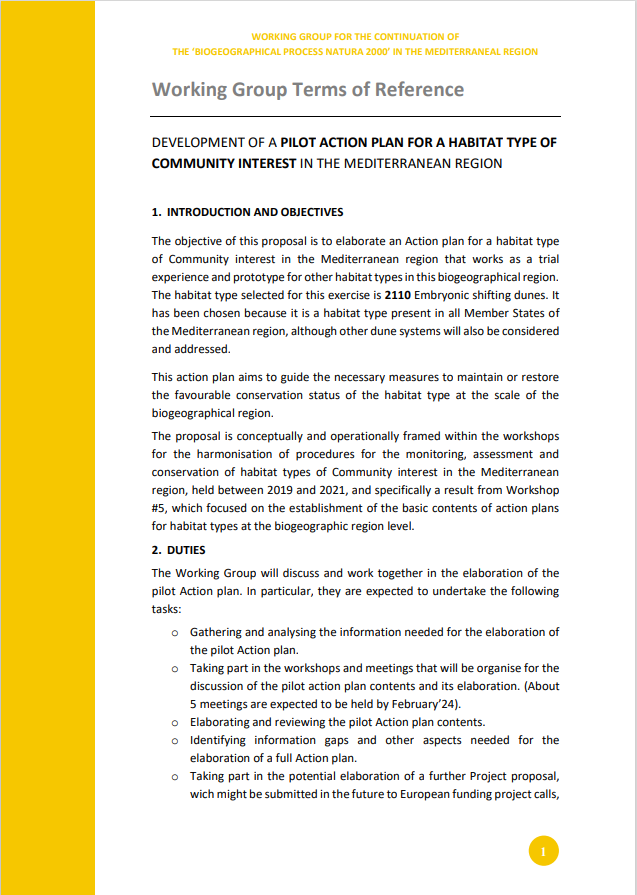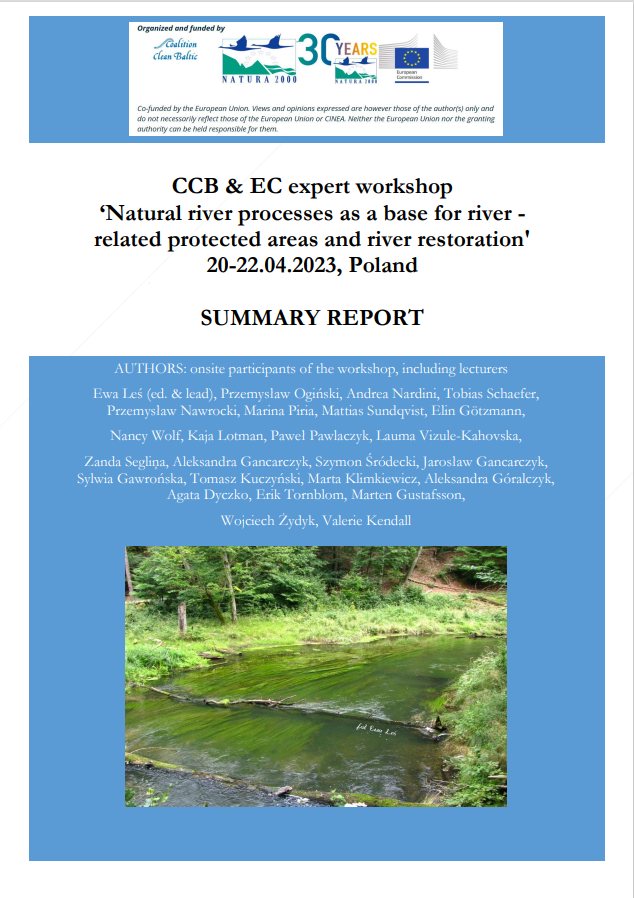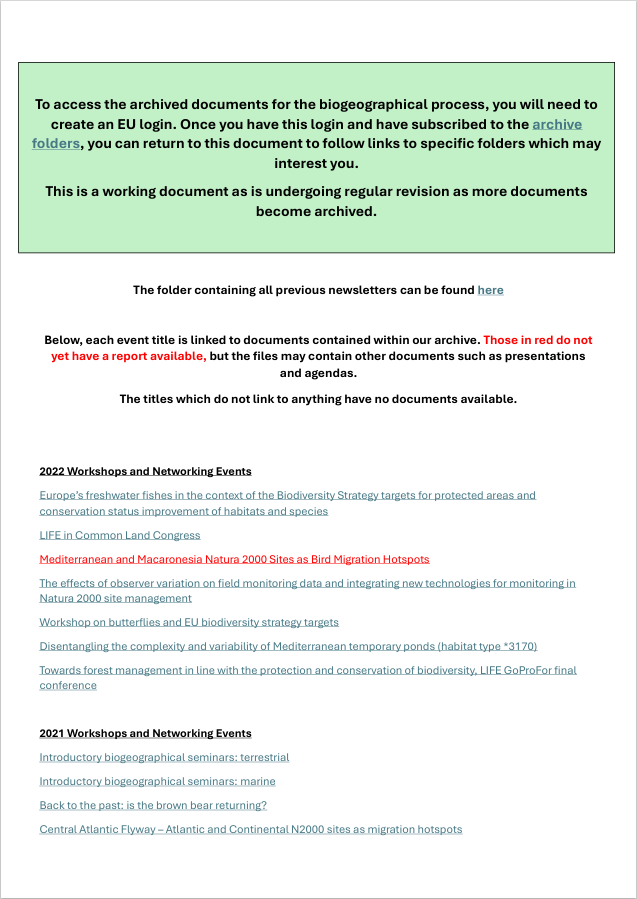Past Events
2023 - 2024
Strictly Protected Areas, Brussels, 12-13 November 2024
One of the outcomes of the terrestrial biogeographical seminars was the need expressed by Member States to discuss strict protection, in view of the protected areas pledge. This event was held at the Committee of the Regions in Brussels, where the introductory plenary session was in a hybrid mode, and the second day was in-person only.
Presentations from the event: Day 1
Setting the Scene
Romania
Sweden
Belgium
Denmark
Role of the EEA
Presentations from the event: Day 2
Strict Protection in Finland
Perspective of the Hunting and Fishing Community
Strict Protection: the new tool in the EU biodiversity policies
Positive impacts on the status of species, habitats & ecosystems
The view of Protected Area Managers
Estonian State Forest Management Centre
The View of Private Landowners
Role of the EEA
Prescribed Burning in Forest Management: Containing Risks Whilst Maintaining Biodiversity, 10-11 September 2024 online, and 2025 Sweden
A networking event on prescribed burning was held by the Swedish Environmental Protection Agency SEPA, together with the Life2Taiga project. The event was in the framework of the Natura 2000 Biogeographical Process.
The online event took place on 10-11 September 2024, in the form of 2 half day sessions. A follow-up event with a field excursion in Sweden is planned for 2025.The event will cover all biogeographical regions and ecosystems, although the focus will be on forests.
More information can be found on the Life2Taiga website.
Strictly Protected Marine Areas in the Context of the EU Biodiversity Strategy, 16 April 2024, Online
Presentations from the event
Criteria for Strictly Protected Marine Areas
Overview of the Three Regional Marine Seminars
Danish Preliminary Pledge on Strict Protection
The Swedish Experience of the Strict Protection Pledge
French Approach to Challenges of Pledging for Strict Protection
Challenges in the North German and Baltic Seas
Overview of a Joint NGO Analysis of EU MPA Pledges
An event on the effectiveness of Marine Protected Areas, 26 March 2024, Croatia
A networking event on Survelliance and Enforcement for the Effectiveness of Marine Protected Areas in the Adriatic Sea, organised by Sunce, took place on 26 March, in Split, Croatia.
The event was organised in the framework of both the biogeographical process and the Interreg Italy – Croatia EFFICIENTN2K project “Strengthening Institutional Collaboration on Surveillance and Enforcement in Coastal and Marine Natura 2000 Sites”.
The event served as an opportunity to present findings of the analysis of current capacities to control priority pressures arising from human activities in marine and coastal protected and Natura 2000 sites in Italy and Croatia. Special focus was on illegal fishing, anchoring, discharge of wastewater from boats, pollutions from agricultural practice and coastal fires. Participants discussed solutions for improving surveillance and enforcement to ensure effective management of MPAs.
Presentations from the event
EFFICIENTN2K Project: Introduction
The Biogeographical process
Management of N2K: Legal requirements
Achieving Protected Areas in Croatia
EFFICIENT N2K: Municipality of Ugento
Surveillance and Enforcement
Towards Sustainable Forest Management and Monitoring: Bottoms Up Final Conference, Rome, 19-21 March 2024
European forests have been altered by management actions aimed at timber production for millennia. Forest habitats acknowledged by the Habitat Directive (92/43/EC) make no exception, and in the last State of Nature in the EU Forestry is reported as the main pressure to forest habitats, of which about 80% are in an unfavourable conservation status.
The current indicators of forest sustainability are mostly based on forest stand structure and landscape properties that may, but not always are, related to forest biological diversity. The COST Action BOTTOMS-UP aimed at increasing the degree of the biodiversity sustainability of European forest management. The project gathered the most comprehensive knowledge of European multi-taxonomic forest biodiversity through the collaboration of research groups that collect data locally. Information about the COST action can be found at htps://www.botoms-up.eu/en/
Understanding OECMs to Achieve the 30 by 30 Target, 29 September 2023, Brussels
Hosted by the European Bureau for Conservation and Developments (EBCD), this marine BGP workshop invited key stakeholders to Brussels to deliberate upon “understanding Other Effective Conservation Measures to achieve the 30 by 30 target”. This event aimed to accelerate progress within the EU Biodiversity Strategy and inform Member States in their pursuit of legally protecting a minimum of 30% of the EU’s sea area by 2030, with 10% under strict protection.
Presentations from the event
The Biogeographical Process
EU Biodiversity Strategy Targets
OECMs in Fisheries: The Solution
Issues with Implementation
OECMs Quick-Screening Process
Case Study: Sea Sandeel
Case Study: Boxes as OECMs
OECMs from the GFCM Area
Event Report
Report – 2022 expert meeting on fishery-related OECMs in the Med
Restoring Degraded Landscapes Through Green Infrastructure, Lisbon, 10 May and 20 June 2023, Lisbon
This Networking Event explored the linkages between land use planning, biodiversity conservation objectives, and landscape restoration through green infrastructures. The discussions delved into the strategic development of green infrastructure to foster ecological connectivity, shedding light on intervention priorities and their alignment with restoration plans. The objective was to foster collaboration among diverse stakeholders, including academia, central administration, municipalities, and local associations engaged in restoration and planning initiatives.
The event developed in two distinct parts over two days:
1. First Part (10th May): Workshop: This session featured presentations and interactive working sessions to facilitate in-depth exploration and understanding of the topics.
2. Second Part (20th June): Field Trip and Local Discussion: Encompassing a field trip to the southern region of the Lisbon Metropolitan Area, participants had the opportunity to get involved in a few successful restoration projects. This experience offered a tangible context for discussing effective landscape solutions.
By incorporating theoretical and practical discussions, the Networking Event aimed to create a comprehensive dialogue on the detailed relationships between land use planning, biodiversity conservation, and landscape restoration, fostering a shared understanding among stakeholders with diverse expertise.
Development of a Pilot Action Plan for a Habitat Types of Community Interest in the Mediterranean Region, 8 June 2023, Online
Within the framework of the Biogeographical Process and following the conclusions of the 2nd Mediterranean Biogeographical Seminar, held in November 2017 in Limassol (Cyprus), five workshops to standardise procedures for monitoring, assessing and conserving habitat types of Community Interest in the Mediterranean region (hereafter referred to as MED Workshops) were organised between 2019 and 2021. MED Workshop #5 was conceived as a tool for the practical convergence and compilation of the concepts and methodologies set out in the other four workshops, concluding with the preparation of a table of minimum contents for an Action Plan for a type of habitat, which was agreed with those attending the workshop.
As a result of the work of the MED Workshops, a proposal was made to set up a Working Group with participants from all the Member States of the Mediterranean region. This Working Group will elaborate a Pilot Action Plan for a habitat type of Community Interest. Taking into account the rich discussion had at the end of the meeting held on the 23rd November 2021, following the expert criteria and focused on finding a habitat type that is present in all the countries within the Mediterranean region, the habitat type chosen is the 2110 Embryonic shifting dunes.
The first meeting was held online on 8 June 2023.
Natural river processes as a base for river-related protected areas and river restoration, 20-22 April 2023, Poland
One of the EU Biodiversity Strategy targets is “to legally protect at least 30% of the land, including inland waters, of which at least one third (10% of the land) is to be under strict protection”. Various natural habitats may be included in the protected areas of concern. One of them is rivers. Rivers are parts of many protected areas, but may they benefit from strict protection? On 22 June 2022, the European Commission adopted the proposal for a Nature Restoration Law (NRL), a key element of the EU Biodiversity Strategy. The regulation establishes a framework within each Member States will implement, without delay, effective area-based restoration measures that will cover, by 2030, at least 20% of the EU’s territory and marine areas, and by 2050 – all ecosystems in need of restoration, including freshwater ecosystems. The implementation of the NRL will be a huge challenge; in some countries of the Baltic Sea Region even 92% of river surface water bodies need restoration.
The aim of this workshop was to support preparations for these measures. During the event, there were discussions directly linked with the “10% of strict protection target” which helped experts better submit rivers to the national pledges in the biogeographic process. Also, discussions were linked with the “25km of free-flowing rivers restored” target (part of them may be restored by natural processes under strict protection; others may be one-off restored and then left to natural processes as strictly protected). The workshop concerned continental and boreal biogeographical regions and the importance of the Baltic Sea basin.
All presentations with relevant content are included on CCBs website.
Migratory Seabird-Friendly Management of Marine and/or Coastal Protected Areas in the Baltic Sea Region, 15 May 2023, Poland (and online!)
This online networking event brought together biodiversity management experts from the eight EU Baltic Sea littoral countries (i.e., Denmark, Estonia, Finland, Germany, Latvia, Lithuania, Poland and Sweden) with the aim of devising appropriate management practices focusing on migratory seabird populations that use the Baltic Sea. This event was hosted by OTOP (BirdLife Poland).

Presentations from the event
All documents related to previous events (up to the end of 2022) have been archived in our Workshop Library, which requires an EU login to access. Once you are logged in, you can request access to the archives.
To the right you can find a PDF which lists all of the previous events held under the scope of the biogeographical process. Each event title will take you to the relevant folder for that event. You may need to log in to CIRCABC then return to the document.
If you have any issues please email Kristina@naturebureau.co.uk
